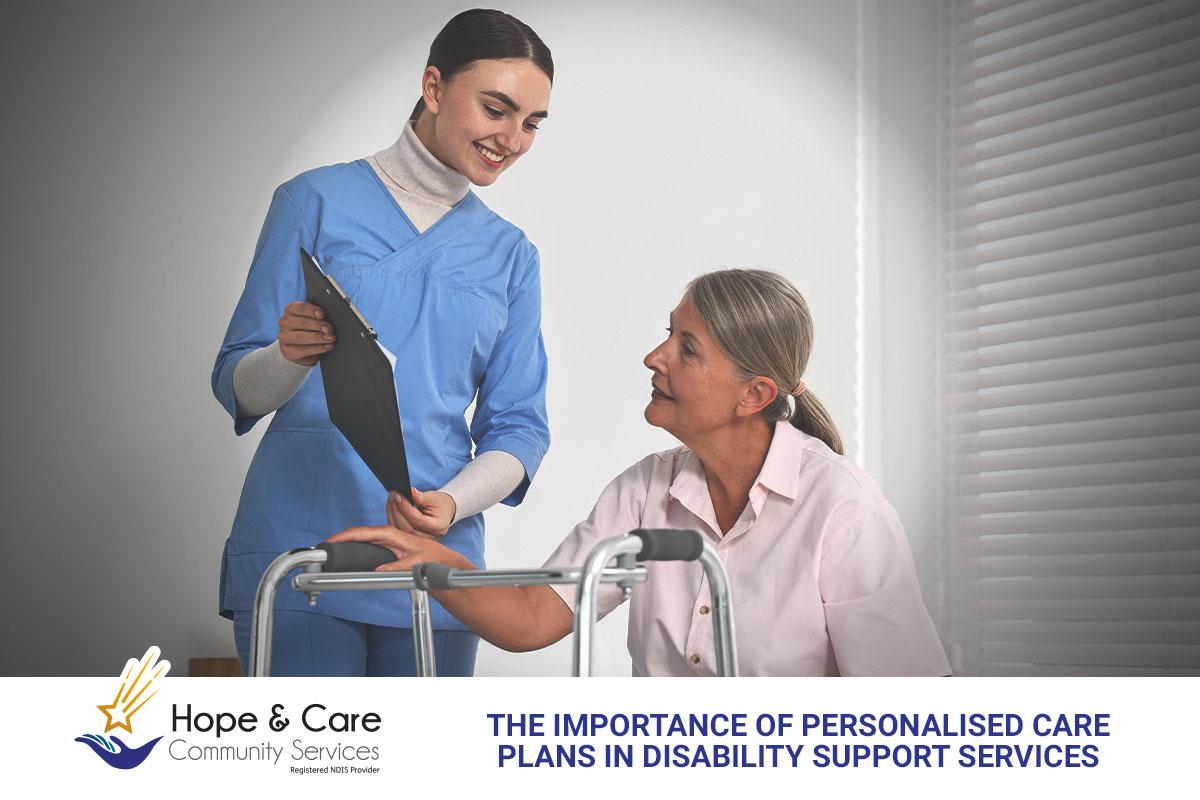
In Australia’s disability support sector, personalised care plans have become one of the most vital tools for delivering effective, participant-led support under the National Disability Insurance Scheme (NDIS). No two people experience disability the same way and that is why tailored care not standardised services is key to helping individuals lead fulfilling, independent lives.
This article explores the importance of personalised care plans, how they work and why they are central to high-quality NDIS disability services in Queensland and beyond.
What is a Personalised Care Plan?
A personalised care plan is a structured, flexible document that outlines the specific supports and services an NDIS participant requires to achieve their goals and improve their quality of life. This plan is developed collaboratively with the participant, their family or carers, support coordinators, allied health professionals and service providers.
Rather than being a one-time document, it is a dynamic and evolving plan that adapts to changes in the participant’s life. From in-home disability care and community access to supported independent living (SIL), behaviour support and therapy services, the plan guides all aspects of support.
The NDIS promotes this person-centred approach, as it allows individuals to exercise choice and control over the services they receive one of the core principles of the Scheme.
Why Personalised Care Planning is Crucial in NDIS Disability Services
Enables Choice, Control and Autonomy
One of the most important aspects of NDIS personalised care plans is that they give participants control over their supports. Instead of receiving a fixed service package, individuals actively contribute to the design of their plan. This encourages independence, builds confidence and promotes greater satisfaction with services.
Participants can decide:
- What goals they want to pursue
- Who delivers their supports
- How and when those supports are provided
This empowerment leads to stronger engagement and better long-term outcomes.
Delivers Holistic Disability Support
Personalised plans are designed to address all areas of wellbeing not just physical health or medical needs. They consider:
- Emotional and mental health
- Social inclusion and community participation
- Cultural and spiritual values
- Employment and educational goals
- Personal routines and preferences
This holistic disability support model ensures individuals are supported to live life fully, not just functionally. It aligns with best practices in modern disability care and is a key expectation under the NDIS Practice Standards.
Responds to Life’s Changes
NDIS participants may face changes in their health, living situation, support network, or personal goals. A major advantage of personalised care plans is that they are flexible. Plans can be reviewed and adjusted regularly to reflect evolving needs.
For example, the plan may include:
- Additional support after a hospital stay
- New goals related to social or job participation
- Increased allied health services following a diagnosis
- Transitioning to Supported Independent Living (SIL)
This responsiveness ensures that the support always remains relevant, effective and goal-oriented.
Improves Coordination Between Support Services
Effective disability support relies on strong collaboration. Personalised care planning improves communication between:
- Families and informal carers
- NDIS support coordinators
- Support workers and providers
- Allied health and medical professionals
With a central care plan in place, all service providers and stakeholders can align their efforts, reduce gaps in care and provide more consistent support. This leads to better outcomes and a more cohesive support network.
Aligns with NDIS Quality and Safeguards Standards
The NDIS Quality and Safeguards Commission requires providers to demonstrate how they deliver person-centred supports. By using personalised care planning, providers can meet compliance standards while improving service quality.
Key compliance benefits include:
- Transparent goal-setting
- Participant-led decision-making
- Evidence of regular plan reviews
- Documentation of participant outcomes
NDIS participants also benefit from increased accountability and clearer communication about their services.
How Personalised Care Plans Are Developed
The personalised planning process typically follows these steps:
Step 1: Initial Discovery
Participants share their background, daily routines, aspirations, communication preferences and key challenges with a planner or coordinator.
Step 2: Collaborative Planning
Family members, carers, support coordinators and allied health providers contribute insights to help shape a well-rounded support strategy.
Step 3: Goal Identification
The participant identifies short-term and long-term goals. This could include daily living skills, building social connections, or employment readiness.
Step 4: Mapping Supports and Services
Supports are matched to goals, such as personal care, behaviour therapy, transport assistance, or help with accessing community activities.
Step 5: Implementation and Monitoring
The plan is put into action and reviewed regularly to track progress, adjust supports and ensure the participant remains on the path to achieving their goals.
Real-World Impact of Personalised Care in Disability Support
Personalised care planning has proven to be effective across various areas of NDIS disability support, including:
- Positive Behaviour Support (PBS) – tailoring behaviour strategies to individual triggers and strengths
- In-home disability support – adapting services to match home routines, family needs and preferences
- Community and civic participation – identifying local programs and social goals that align with personal interests
- Allied Health Services – matching therapy to individual needs, such as speech, occupational, or physiotherapy
This targeted support leads to higher participant satisfaction, better health outcomes and improved daily functioning.
Conclusion: Personalised Care Planning is the Future of Inclusive Disability Support
To deliver effective disability care, providers must move beyond generic service models. Personalised care plans are essential for building a support system that reflects the unique journey, values and goals of each NDIS participant.
By using a personalised approach, providers can create stronger partnerships, offer more meaningful support and empower individuals to live with purpose and independence. Personalised planning not only supports compliance with NDIS standards it creates better lives for people with disability.
About Hope & Care Community Services (HCCS)
Hope & Care Community Services (HCCS) is a trusted and registered NDIS provider in Queensland, delivering individualised support to people living with disability. We specialise in person-centred planning and offer a wide range of services including:
- Support Coordination
- In-Home Disability Care
- Community Participation
- Supported Independent Living (SIL)
- Allied Health Services
- Positive Behaviour Support (PBS)
Our team works closely with participants to develop care plans that reflect their goals, lifestyle and culture. At HCCS, we believe that personalised support is the foundation of better outcomes and we are here to walk alongside you every step of the way.
Want to learn more? Read other articles :
- Redefine Independence your own way – with HCCS
- Who’s Who: The Key Terms of Your NDIS Plan
- Foundational Supports: Building Blocks of NDIS Success
HCCS is a registered NDIS provider. Learn more about our services.
♥ We are available in Brisbane! – Our team is just a call away!
